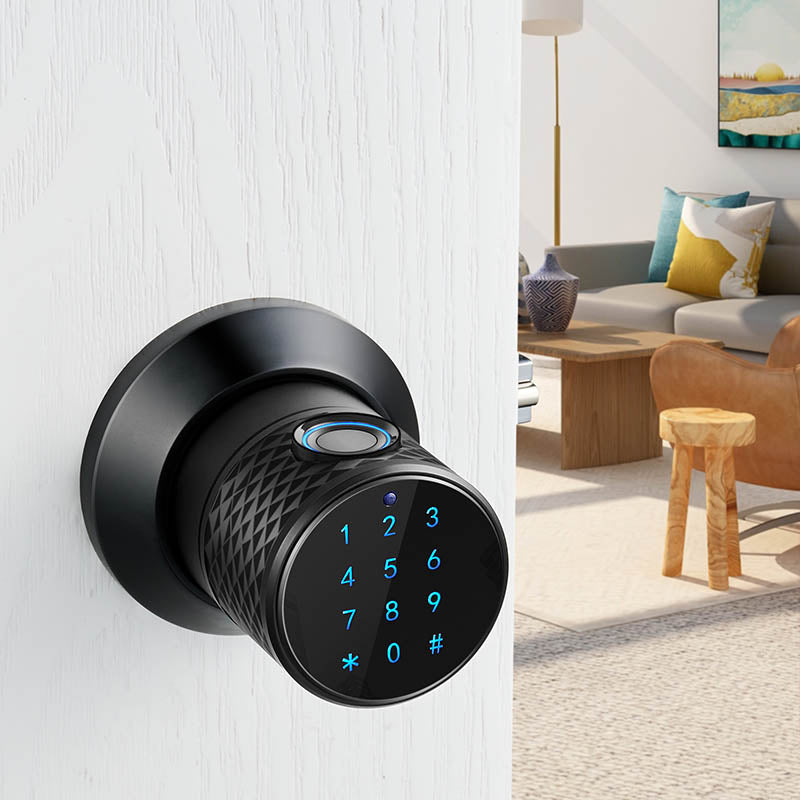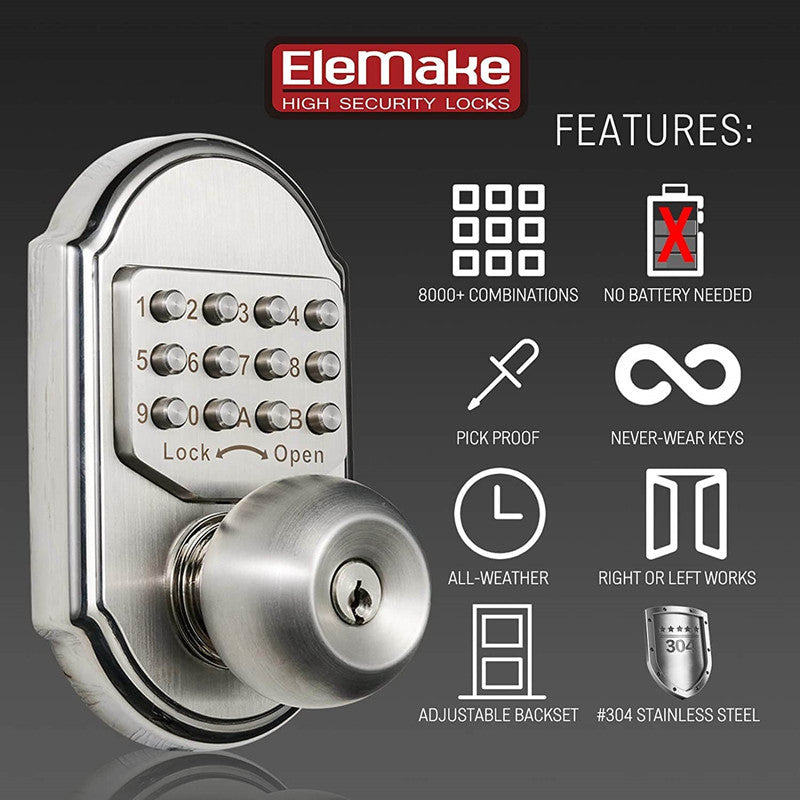Smart Door Lock vs Traditional: Which Should I Choose?
In a world where technology is reshaping our lives, have you ever wondered how your home security measures up? Are traditional door locks still your best bet, or is there a smarter alternative? With the rise of smart technology, the stage is set for an intriguing showdown between the tried-and-true traditional locks and the sleek innovation of smart door locks. Here today, we delve into a comprehensive comparison between smart door locks and traditional locks, highlighting their differences, benefits, and potential considerations.
Smart Door Locks
Smart door locks, a product of the digital age, function through a combination of electronics and wireless technology. These locks connect to your smartphone, home automation system, or a dedicated control device. Instead of a traditional key, smart locks employ various methods for access, such as a mobile app, key fob, keypad, or even biometric verification like fingerprints, voice control or facial recognition. Upon successful verification, the lock mechanism is engaged or disengaged.

Pros:
- Various Entry Options: Smart locks offer multiple entry options, such as bluetooth, WIFI, fingerprints, passwords, RF cards, keys, and smartphone apps, which make unlocking your door much more convenient.
- Enhanced Security Features: Many smart locks come with advanced security features like two-factor authentication, tamper alerts, and real-time activity notifications.
- Customizable Access: You can grant temporary access to guests, service providers, or family members without sharing physical keys.
- Integration with Home Automation: Smart locks seamlessly integrate with other smart home devices like Google Home or Amazon Alexa, allowing for synchronized actions and scenarios.
Cons:
- Higher Initial Costs: Smart locks have a higher upfront cost due to their technology and integration requirements.
- Power Source Dependency: These locks rely on batteries or power sources. A dead battery can potentially lock you out.
- Potential Hacking Risks: As with any connected device, smart locks can be vulnerable to digital hacking attempts if not properly secured.
- Learning Curve: Elderly family members or those less tech-savvy might find the learning curve of using smart locks a bit steep.
Traditional Locks
Traditional door locks, also known as mechanical locks, operate on a straightforward principle. They rely on a physical key that aligns with the lock's internal mechanisms, allowing the lock to turn and the door to open. This mechanical process is time-tested and reliable. The key's unique shape corresponds to the configuration of the lock's pins, allowing them to align and the lock to release.

Pros:
- Simplicity and Reliability: Traditional locks are known for their simplicity. With minimal moving parts, they are less susceptible to malfunctions.
- Cost-Effectiveness: These locks are generally more affordable upfront, making them an attractive option for budget-conscious homeowners.
- Less Maintenance: Mechanical locks have proven to be durable over time, requiring minimal maintenance and lasting longer than some electronic components.
Cons:
- Limited Access Control: Traditional locks offer limited ways to control access, often relying on physical keys that can be lost or duplicated.
- Inconvenience in Key Management: If keys are lost or duplicated, the security of your home might be compromised. Additionally, carrying multiple keys can be cumbersome.
- No Remote Access: Traditional locks lack the modern luxury of remote locking and unlocking, requiring your physical presence to ensure security.
- Vulnerable to Picking: Traditional locks can be picked by experienced burglars, potentially compromising your home's security.
- Lack of Alerts: Traditional locks don't offer real-time alerts or notifications, leaving you in the dark about any unauthorized entry attempts.
What to Consider When Choosing Between Smart Locks & Traditional Locks
- Security Needs: Assess how much security you require. If advanced features and remote control are priorities, smart locks are advantageous. If you prioritize simplicity and reliability, traditional locks may suit your needs.
- Budget: Consider your budget for the lock and its potential integration with a larger home automation system.
- Convenience: Determine if the convenience of remote access and guest management outweighs the initial investment.
- Technical Proficiency: Evaluate your comfort level with technology. Smart locks offer a range of features but may require some technical understanding.
- Home Automation Integration: If you have or plan to have a smart home ecosystem, smart locks can contribute to a seamless experience.
Bonus Tip: Choosing Elemake Mechanical Keyless Door Lock
Amidst the debate, there's a solution that harmoniously marries modern ease and classic reliability – Elemake mechanical keyless door lock. This innovation combines the accessibility of smart locks and the trusted mechanism of traditional locks, all without the need for batteries or power. With push-button numerical codes or backup keys, you can enjoy effortless entry without the hassle of key management. This hidden gem grants you peace of mind without the vulnerabilities of smart technology or the limitations of traditional locks.
As you navigate the realm of home security, consider this surprising alternative that embraces the best of both worlds.



